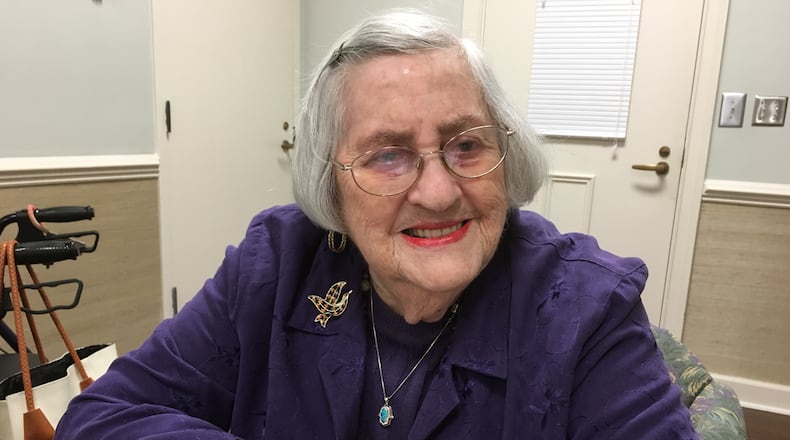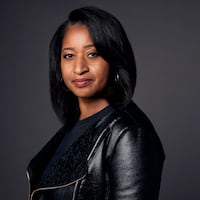Helen Weingarten has told the story many times.
It begins in a small village in Romania with her family being rounded up and taken by cattle car for five days and five nights to Auschwitz. Weingarten was held at the concentration camp for 180 days. She later describes kissing the ground when she came to America in 1949 and settled in Ohio with her husband and young daughter.
Life would ultimately bring Weingarten, 93, to Atlanta, where she has continued to tell her story again and again. The Holocaust survivor is one of a dozen metro-area residents taking part in “These Eyes Have Seen,” a project to document the stories of senior citizens across the country.
Weingarten said she speaks to any organization that invites her to talk about her experiences as a Holocaust survivor, so she was happy to participate in this project as well.
“I have friends and they said, ‘How can you talk about it?’ but if they don’t talk and I don’t talk then no one is going to know what happened. It has to be told,” she said.
Launched in 2015, “These Eyes Have Seen,” began as a passion project of Sunshine Retirement Living, a company which manages 21 retirement homes in nine states. Seniors from outside the Sunshine Retirement Living community were also invited to “audition” for a space in the project.
The project currently features about 100 seniors whose stories appear online at www.theseeyeshaveseen.com.
Organizers hope the project will continue to grow in the coming years. Veterans, elite athletes and many others have agreed to share their stories of love, war, adversity and more.
Spencer Weil, 95, a native of Manhattan, warns that his stories are long. He studied advertising at New York University and became a Mad Man of the sort depicted in the television series about Manhattan’s wild world of advertising in the 1960s.
But the memory he cherishes most was his time as a Marine during World War II. Weil was a college student when Pearl Harbor was attacked. He didn’t have to go to war but he decided he wanted to go.
A few months later, he found himself fighting in the Battle of Guadalcanal. That is when his life really began, he said.
“I was into the Marine Corps 100 percent. Anything they did was gospel. I learned things to this day where I use my Marine Corps training,” Weil said.
Highlights of his memories include earning stripes for stealing food and giving it to hungry American soldiers and personally escorting U.S. Navy Admiral Bill Halsey through the jungle after the Battle of Guadalcanal was won.
For Hyacinthe Holder, 81, her memories are rooted in languages and the arts. Born in French St. Maarten, she moved to Aruba with her family when she was two-years-old.
Her mother was born in the Dominican Republic and spoke Spanish. Her father who hailed from Dominica spoke French. In Aruba, the language she and her siblings learned at school was Dutch. Her parents insisted their children learn all of the languages to which they were exposed.
By the time Holder arrived in the U.S. in 1955, Latin was also part of her lexicon. Her parents thought it would help her learn English. “I could spell all the big words in English, but I didn’t know how to spell (the simple words),” she said.
Still, it wasn’t language that proved the biggest challenge for Holder when she arrived to the states. When they moved to New York her family was formally introduced to segregation.
“The hardest thing was facing segregation,” said Holder who would later march and protest during the Civil Rights Movement.
She eventually moved to Atlanta seeking warmer weather and a place where she could feel more connected to people.
“I think what my parents wanted was for us to be more universal, but what it did to me was I was able to connect more with people on a deeper level,” she said.
About the Author
The Latest
Featured





